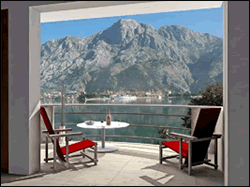There’s currently a lot of draw in the Singaporean real estate market for foreigners, otherwise known as expats. Whether you’re interested in purchasing property outside your native country as an investment, wish to live in Singapore full-time, or find the attractive market rates better suited to your budget than your home country, buying real estate in Singapore and surrounding countries has definitely become more popular over time. Booming markets have attracted investors and immigrants from all around the world, but Singapore also has strict regulations about who and what type of property non-Singaporeans can buy. Here are a few tips for how to find the best property you’re eligible to buy, and how to do it.
-
Know Your Desired Location
There are lots of different locations in Singapore where you can find reasonably priced, attractive real estate. Whether you’re looking for a condo or some other type of home, you can search on Property Guru for an apartment that suits your needs. There are hundreds of listings that cover all different price points, and is one of the most reliable real estate portals for Singapore. The CEO himself started as an entrepreneur, and has become one of the most recognizable resources in the Singaporean real estate industry.
You can use the site to search in different cities and locales, but keep in mind what you want. If you’re looking for a property to use for a second home, or even your primary residence if you’re planning on immigrating, then you should play careful attention to amenities such as access to public transportation, transit roads like major highways, proximity to cities and other types of entertainment, and the surrounding community. Whether you’re choosing to work, live, or both in the Singaporean area you’ve chosen, the quality of a residence outside is just as important as inside.
-
What You Can Buy
As a foreigner, there are certain types of property you’re not eligible to purchase, or at least have lots of restrictions. Unless there’s some reason you intensely desire the restricted real estate, it’s easier to stick to the properties available to non-Singaporeans. According to Singapore Expats, foreigners are eligible without restriction to purchase the following types of property:
-
Properties classified as a condominium as per The Planning Act
-
An apartment building of 6 stories or more including a ground level and any level below including HUDC flats classified as Phase I, II or privatized III and IV
-
A leasehold estate in restricted residential property not exceeding seven years, with some restrictions, that may be eligible for renewal
As is the case with every country, there are many legal regulations on what kind of land can be purchased by non-citizens. While it’s perfectly reasonable to want to own property in Singapore, you’ll need to go through the process of getting the proper permissions and making sure it’s all on the up and up.
-
What You Can’t Buy
The Singaporean government lists the following types of properties as restricted real estate that expats need to apply for permission to purchase:
-
Unoccupied residential land
-
Terrace houses, semi-detached, or detached houses
-
Landed home which is not within an approved condominium development
-
Workers’ dormitory/service apartments/boarding house
This list is complete and almost exhaustive, but just like any legal issue, you’ll want to seek expert counsel. Understanding the law is key in Singapore, where much attention has been paid to real estate regulations by lawmakers in the past few years due to the boom in the market. Although prices and mortgage rates fluctuate daily and the entire industry seems to always be in a dramatic upswing or depression, it’s more scrutinized than ever. Make sure you know what you’re doing before going forward.
Real estate in Singapore and other Asian countries is currently a hot commodity amongst expats all around the world. As housing goes up, there’s a greater demand for townships with special amenities and more luxury residences to choose from. The best way you can navigate the Singaporean real estate world, though, is to enlist the help of experts. Work with a reliable broker and consult a financial expert who knows what they’re doing. There’s a huge legal difference between landed and non-landed properties, for example. As an expat, there will also be plenty of unscrupulous brokers who may try to rp you off. Always require identification and look for brokers based on recommendations. Keep up on real estate trends and the market by getting online and seeing what’s available. There are many ways to keep yourself informed and on top of the real estate game in Singapore, as long as you consult the right people and educate yourself. In short, investing in property in Singapore can be a lucrative and enjoyable financial decision.





